A vegetarian diet means that your body will not receive some very important vitamins, proteins, and minerals that it would normally get from meat. The human body requires these essential elements to function properly, so if you are already following a vegetarian diet or considering a vegetarian diet, you should take dietary supplements to avoid any vitamin deficiencies.
We’ve done a bit of research to help ensure that you get all the nutrients you need every day to keep your body healthy and happy.
What to Know Before You Go Vegetarian
Getting Macronutrients
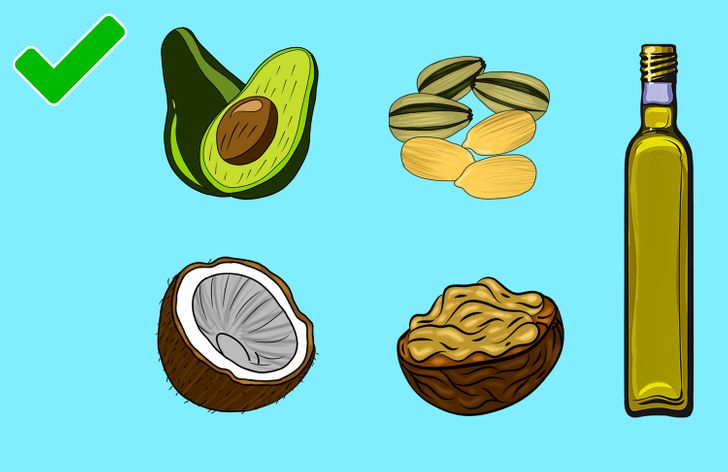
Include a good amount of fat in your diet:
Fats aid in the absorption of “fat-soluble” vitamins: vitamin A, vitamin D, vitamin E, and vitamin K. These fats are the building blocks of important substances in the body and are essential for cell reproduction. They help maintain a regular heart rate, provide an anti-inflammatory function, and regulate cholesterol.
The daily intake of these fats should range between 30% and 33%. Try to eat unsaturated fats that are commonly found in nuts, seeds, and fruits.
One-third of your fat intake should come from monounsaturated fats, found in olive oil, coconut oil, grapeseed oil, almond oil, and hemp oil.
One-third of your other fat intake should come from polyunsaturated fats like nuts, granola, sunflower seeds, avocado, and oil.
Omega-3 & Omega-6 Fatty Acids
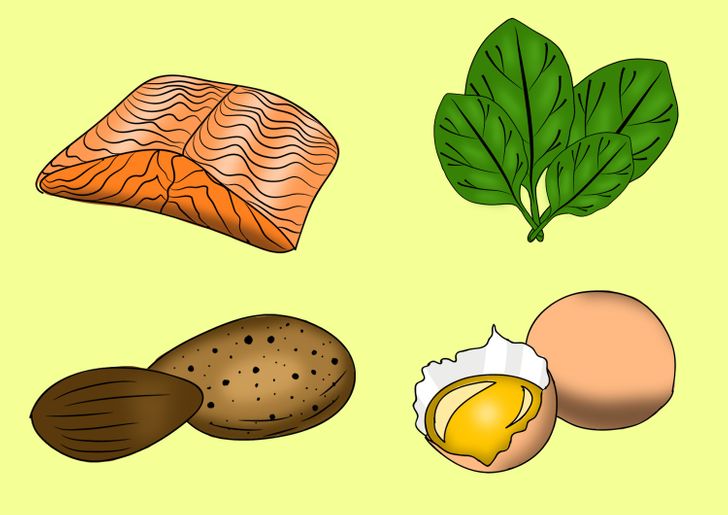
Includes a generous amount of fatty acids:
Adequate omega intake can prevent and control a number of inflammatory conditions such as heart disease, arthritis, muscle degeneration, and autoimmune dysfunction such as arthritis, eczema, and psoriasis.
If you eat fish or lactose-based products and eggs regularly, you will have enough fatty acids in your diet and you will not need vegetarian supplements.
However, if you are completely vegan, you will need a wider variety of vegetables and nuts to ensure you are getting enough fatty acids. For example, you should eat more green leafy vegetables, nuts, flax seeds, chia seeds, and flaxseed oil. If you are still concerned about your diet, you should take a vitamin supplement.
Balance Your Veggies And Grains For Protein
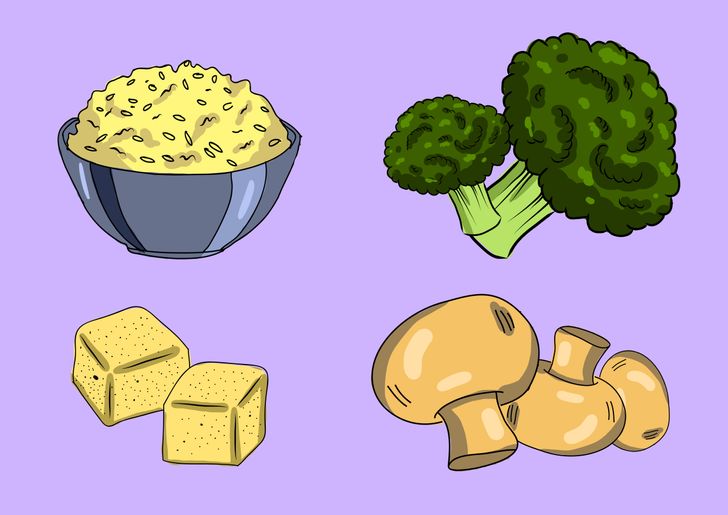
There is a misconception that people who follow a plant-based diet do not get enough protein in their diet. Proteins are made up of amino acids that the body cannot synthesize and must be obtained from food.
Amino acids are found in meat, dairy, and eggs, as well as many plant foods such as quinoa, tofu, broccoli, brown rice, beans, hummus, and chickpeas.
Generally, you should consume about 0.41 g of protein for every pound of your body weight.
Get Your B-12
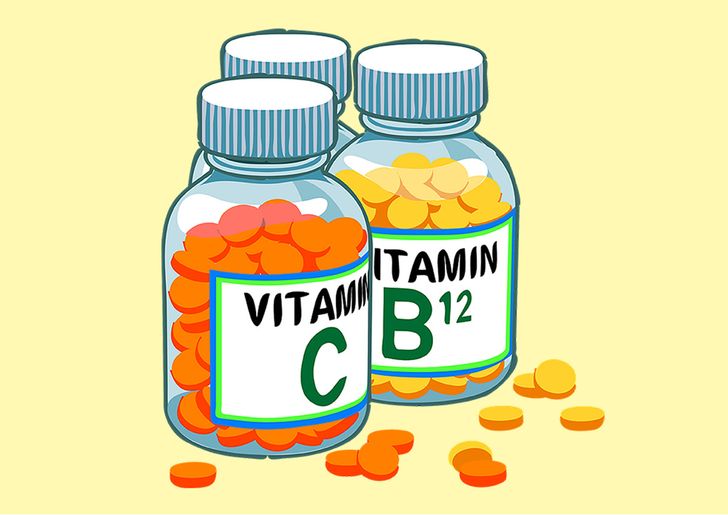
Vitamin B12 is a water-soluble vitamin from the family of B vitamins and plays a key role in the normal functioning of the brain and nervous system, as well as in the formation of blood and DNA.
Getting the required dose of vitamin B12 can be a serious problem for vegetarians, as it is only found in animal products.
It is the only vitamin that vegetarians should take as a dietary supplement.
Also, some foods like soy milk, cereals, nutritional yeast, and meat substitutes are fortified with B12.
Get Enough Vitamin D
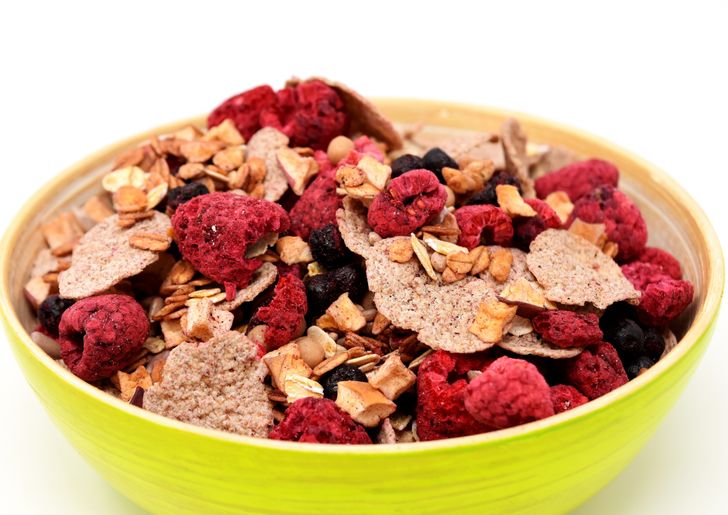
Vitamin D plays an important role in bone and muscle health and helps the immune and nervous systems function properly.
People who consume lactose and animal products can get enough vitamin D from milk, cheese, eggs, and yogurt.
People who strictly follow a plant-based diet can get enough vitamin D from mushrooms, orange juice, soy milk, cereals, soy yogurt, and any vitamin D-fortified plant foods.
Whole Grains For Complex Carbohydrates
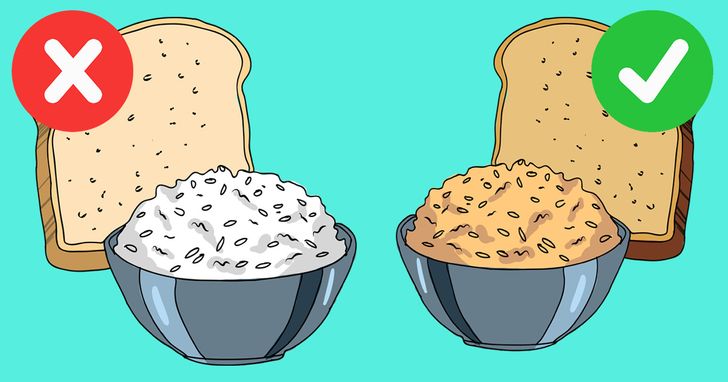
All the foods we eat are made up of three main nutrients: carbohydrates, proteins, and fats.
Carbohydrates, at the molecular level, are made up of short or long carbon chains. The length and shape of the carbon chain determine the type of carbohydrate. There are 2 types of carbohydrates:
Simple Carbs: These are the smallest and simplest types of carbohydrates, like sugar. These simple carbohydrates are rapidly absorbed in the small intestine, resulting in a spike in blood sugar and increased energy after consuming them. White flour, white rice, and foods made with added sugar contain small glucose molecules that are easy to digest, so they enter the bloodstream quickly and can lead to weight gain.
Complex carbohydrates: this group includes starches and fiber found in many foods, such as potatoes, oatmeal, cereals, bread, etc. Starches are more complex and the body takes longer to break down and fiber is not digested. However, it adds other benefits to our health, such as intestinal motility, and gives energy to intestinal bacteria.
Avoid too many simple carbohydrates, as this can lead to heart disease or excessive weight gain. Instead, replace them with whole fruits like blueberries, grapes, and apples, and starchy vegetables like potatoes, corn, and peas.
It’s critical to remember that no matter what your diet looks like, it must be tailored to the needs of your body. Always try to do additional research to get all the nutrients from the foods you eat.
Have you ever thought about becoming a vegetarian or vegan? What do you think of vegetarian or vegan diets? Share your ideas and experiences with us in the comments!
Preview photo credit depositphotos.com, depositphotos.com


